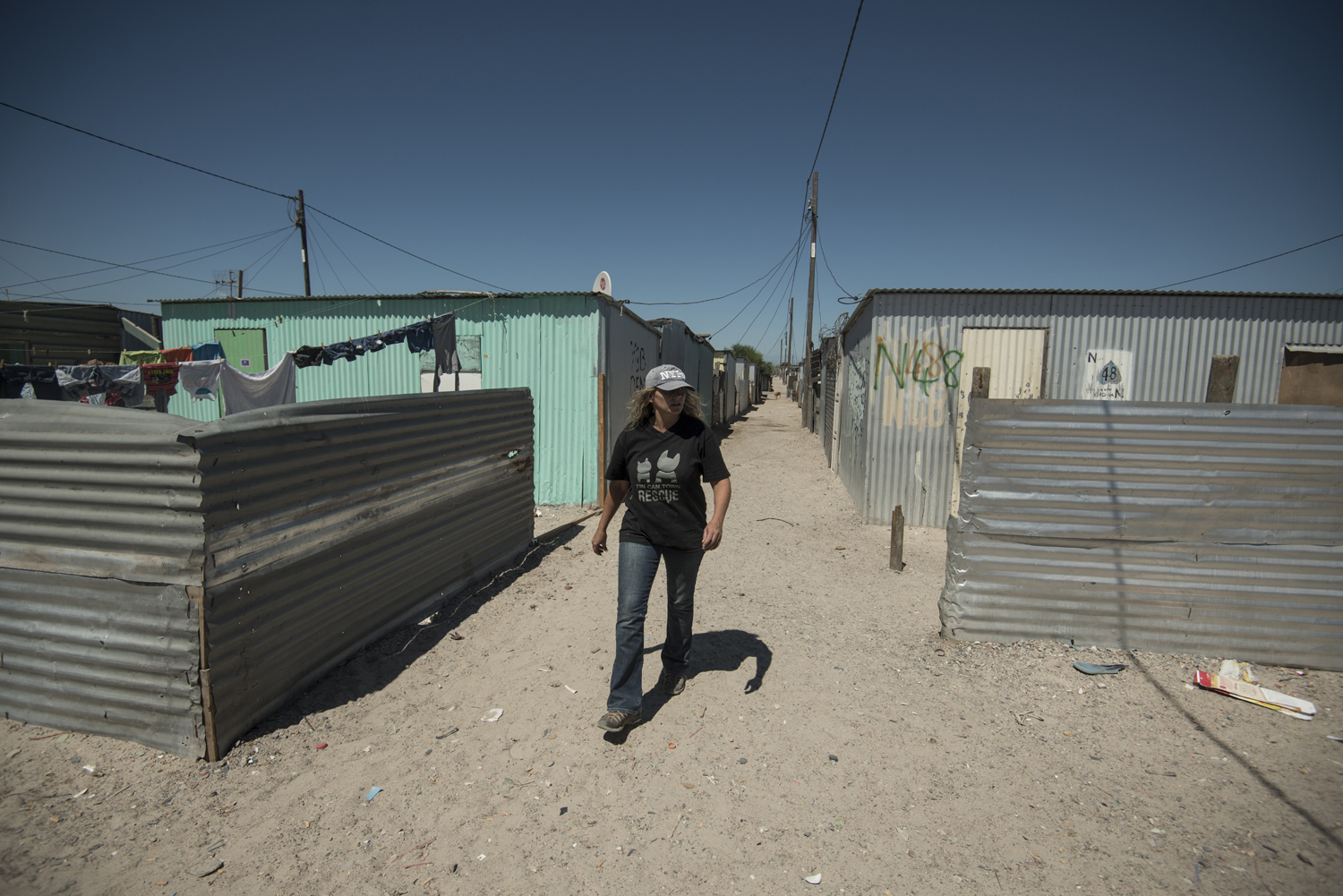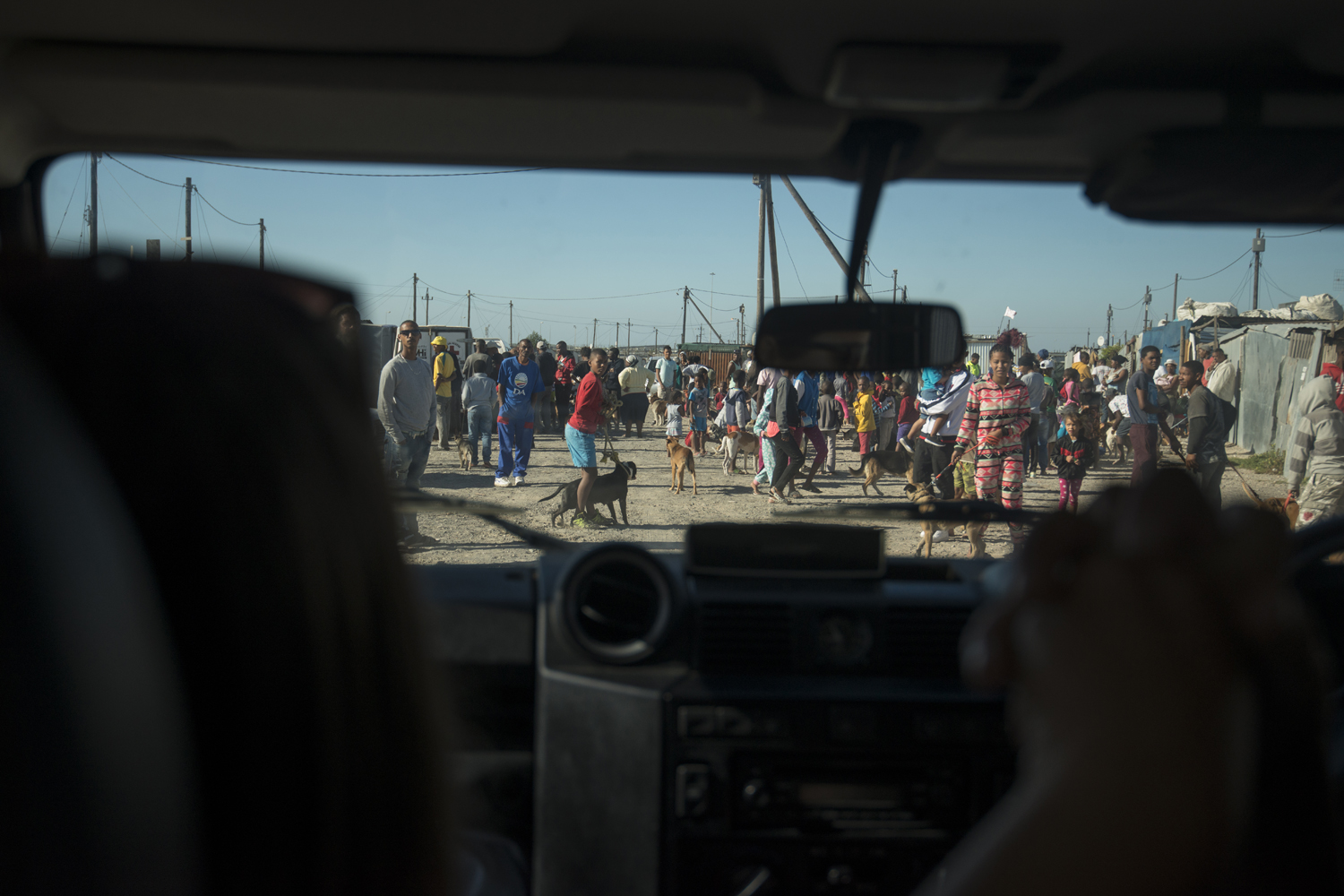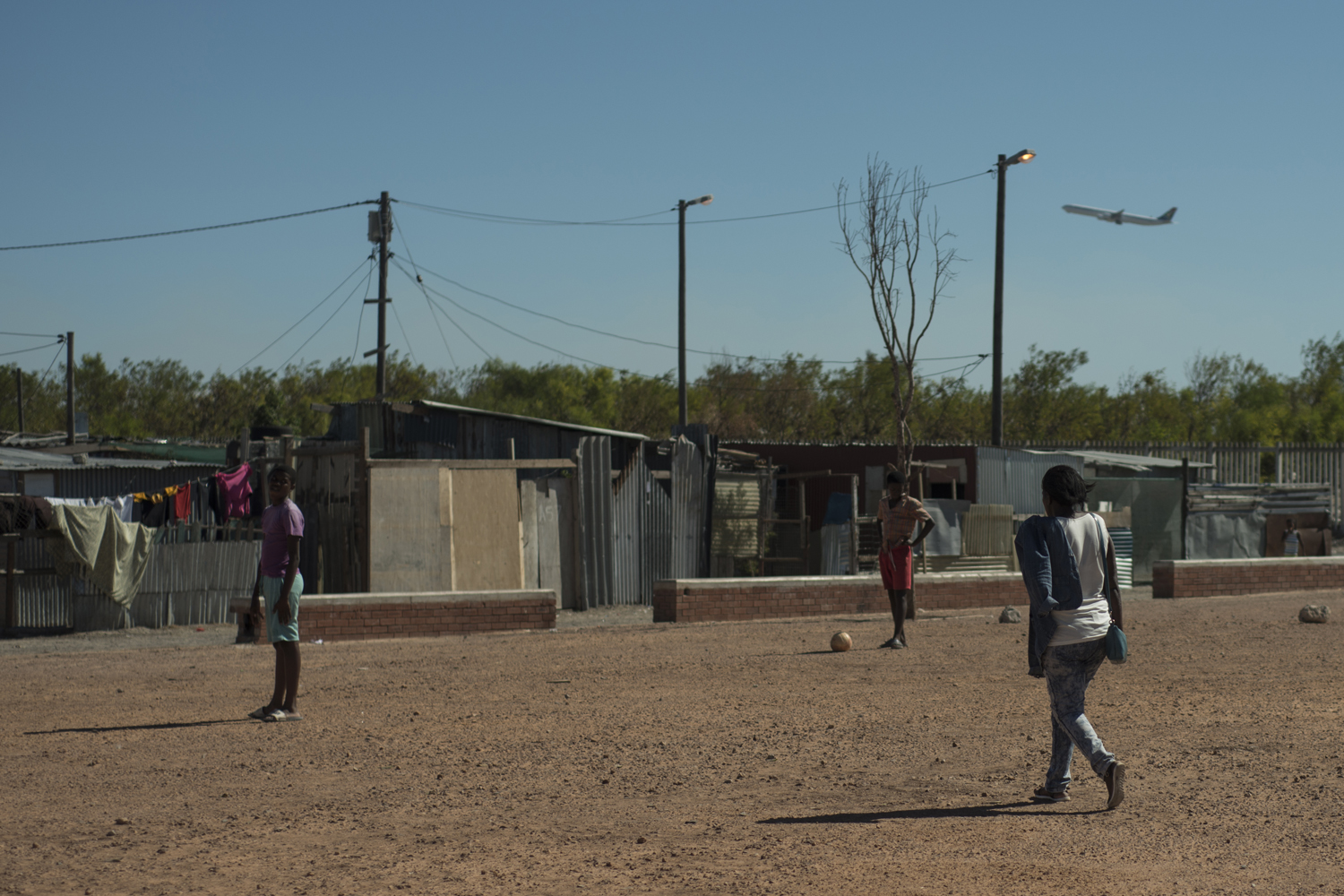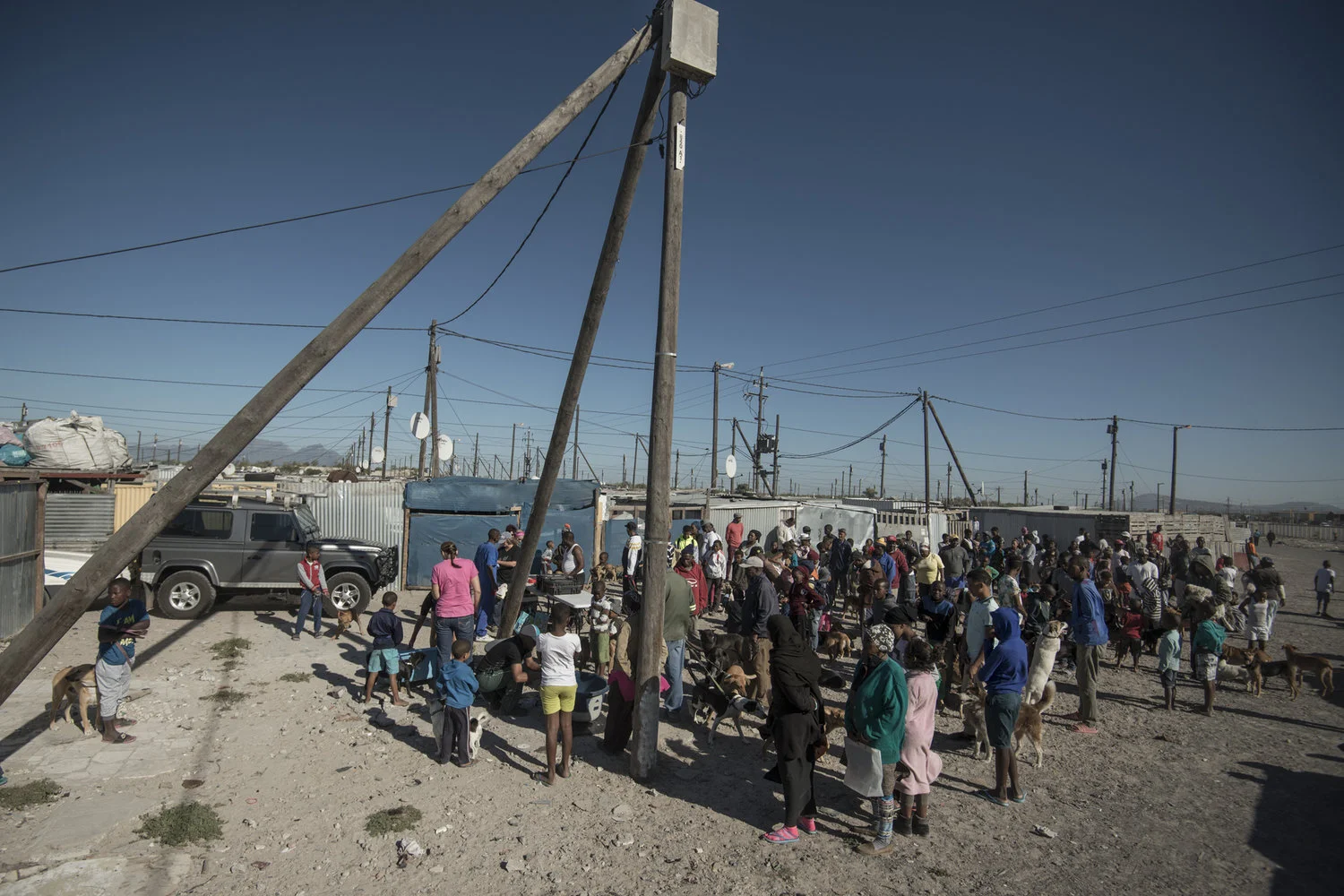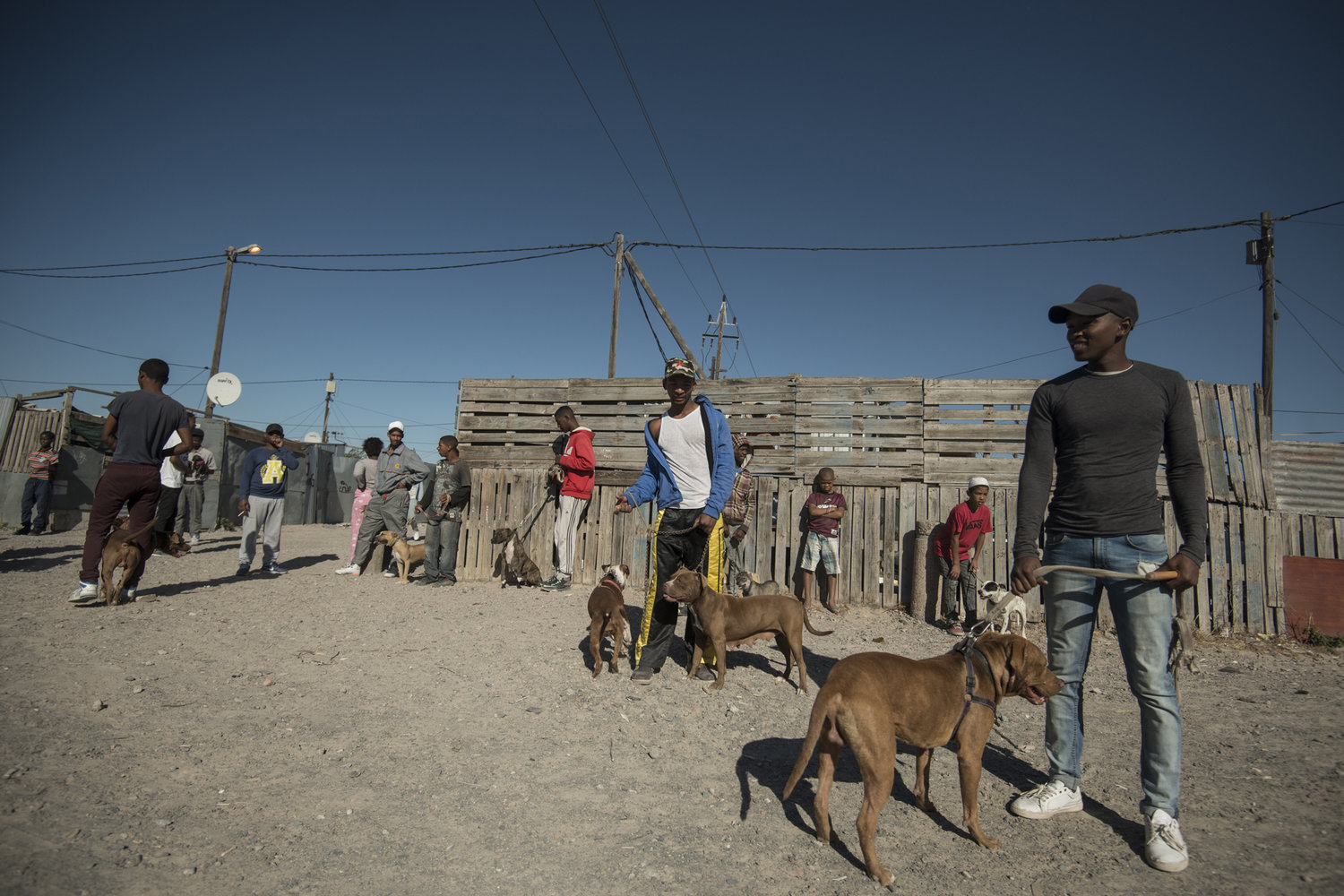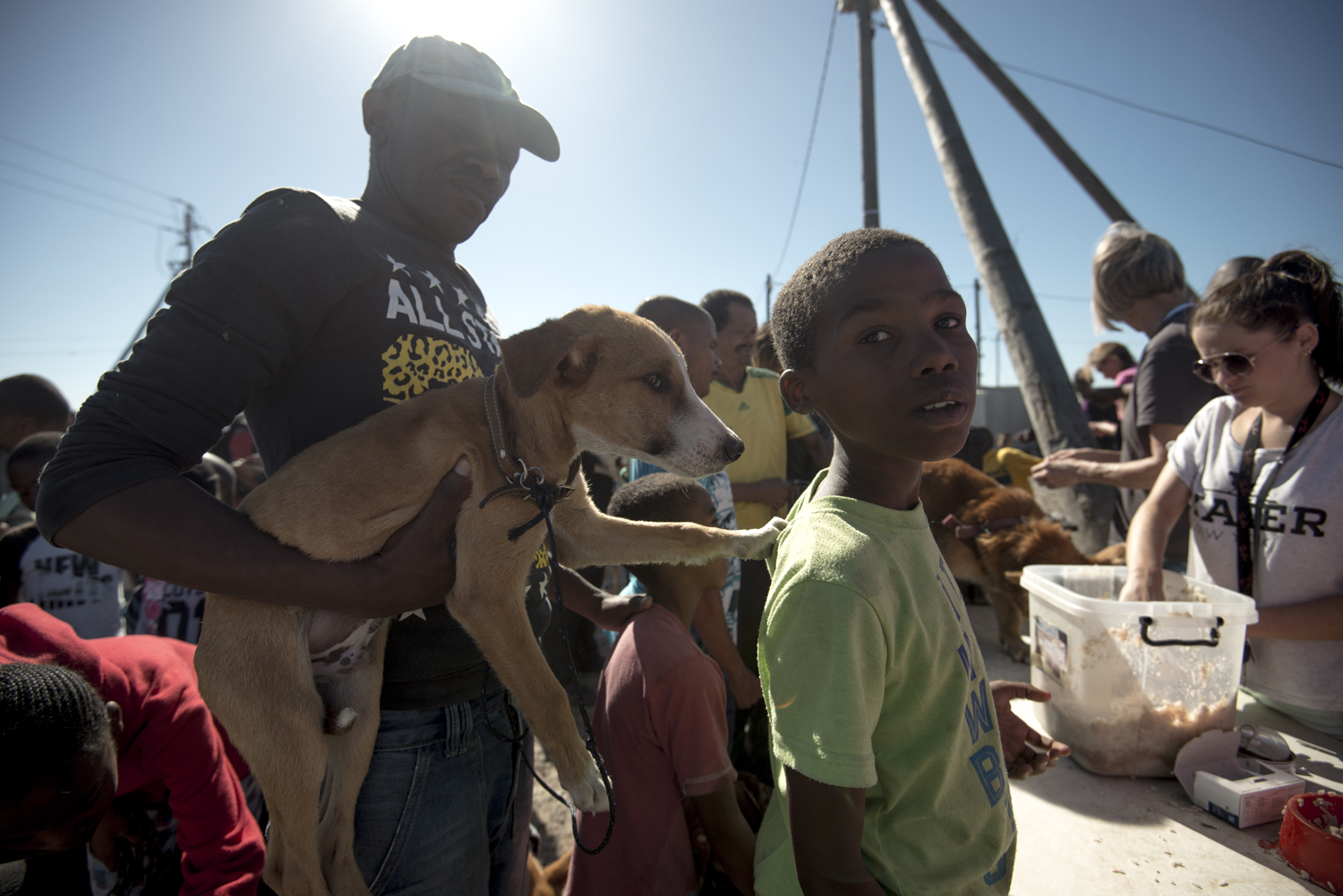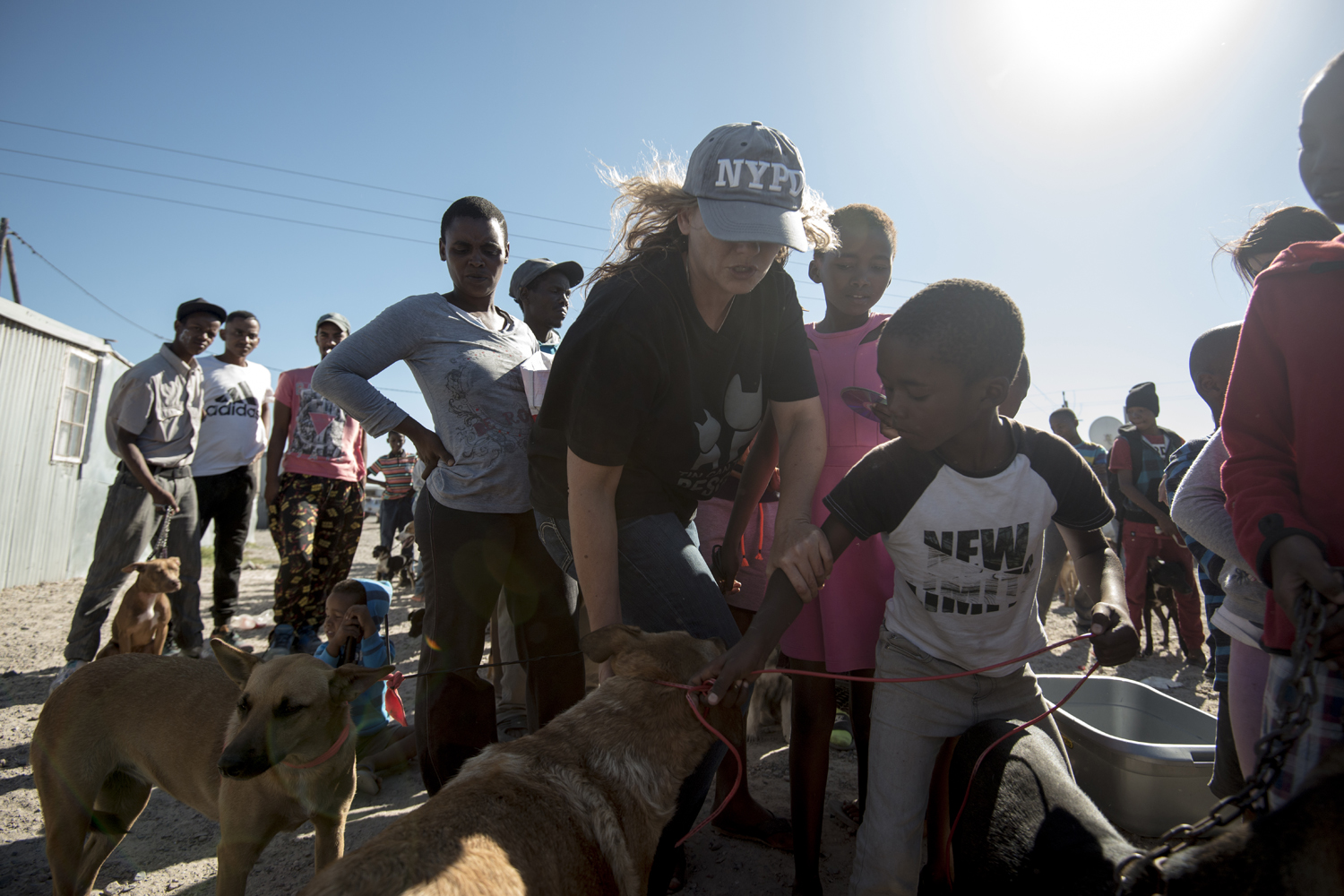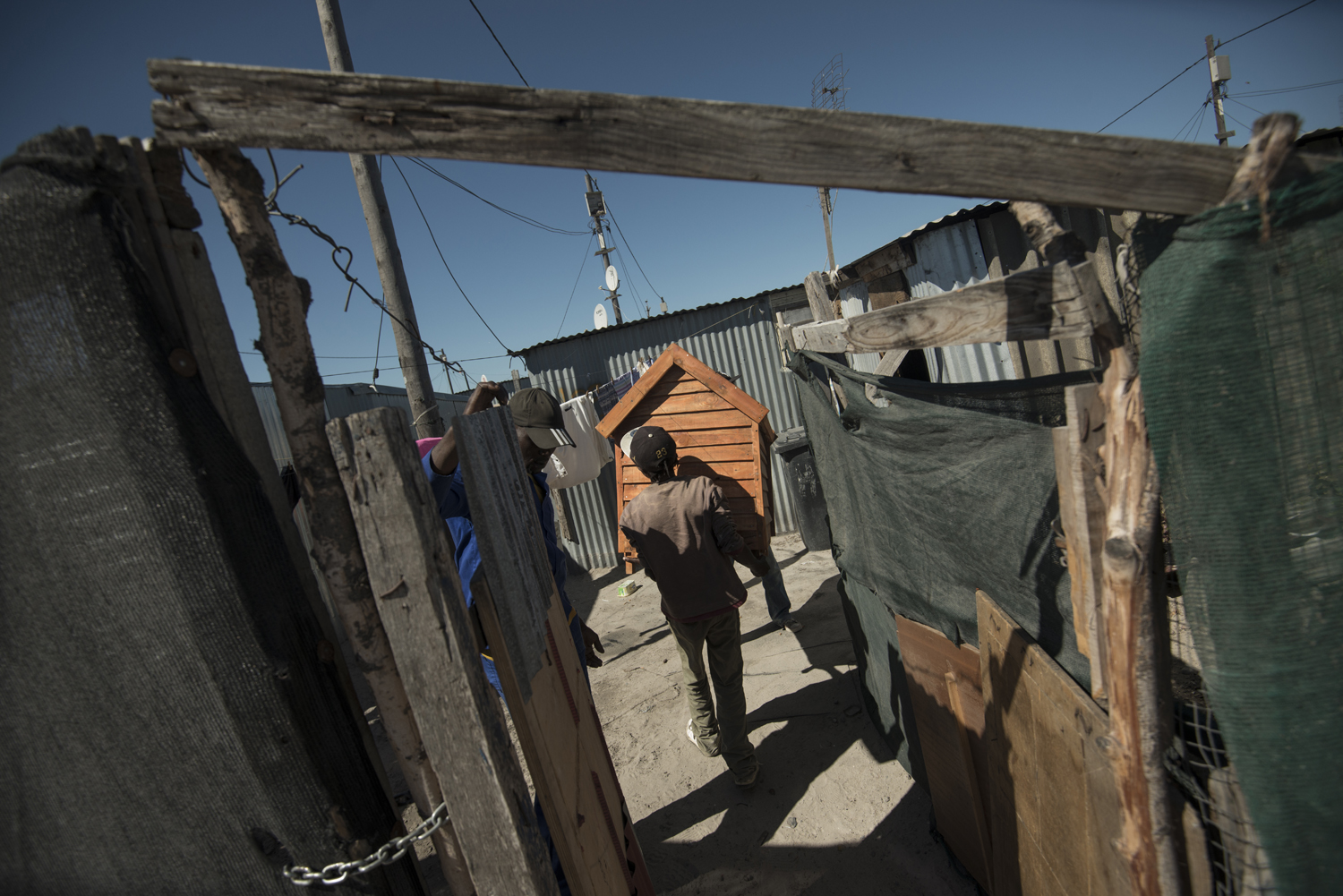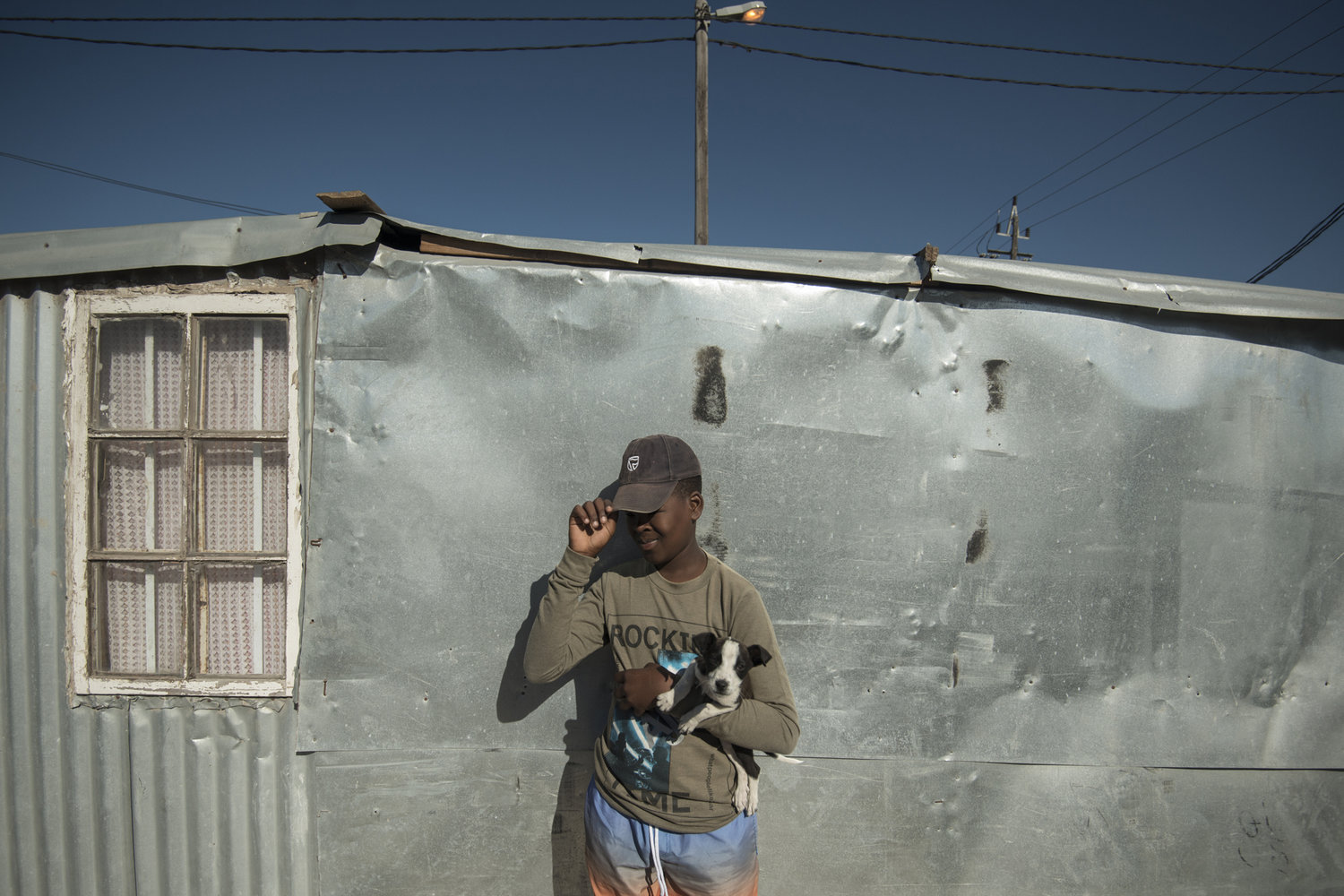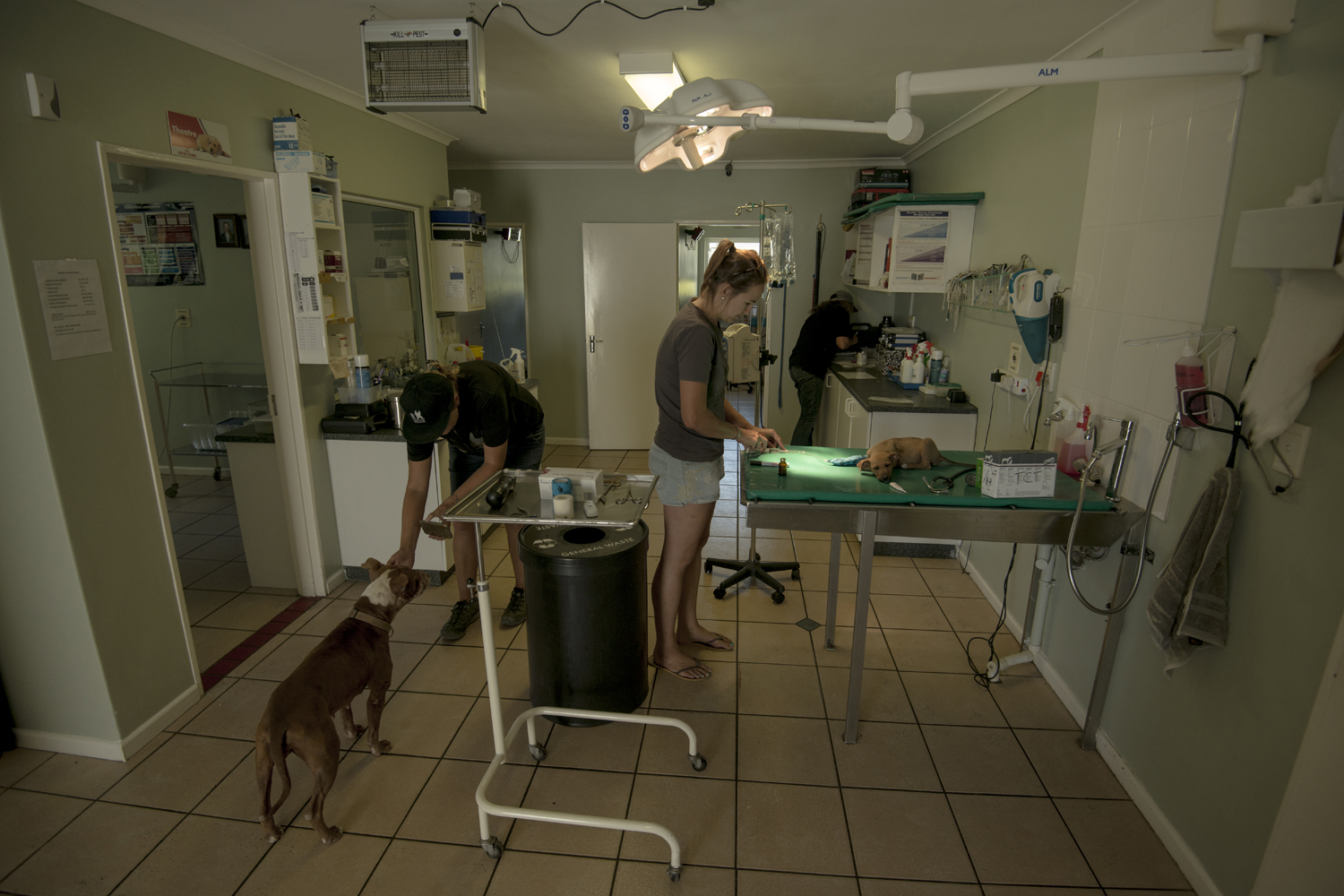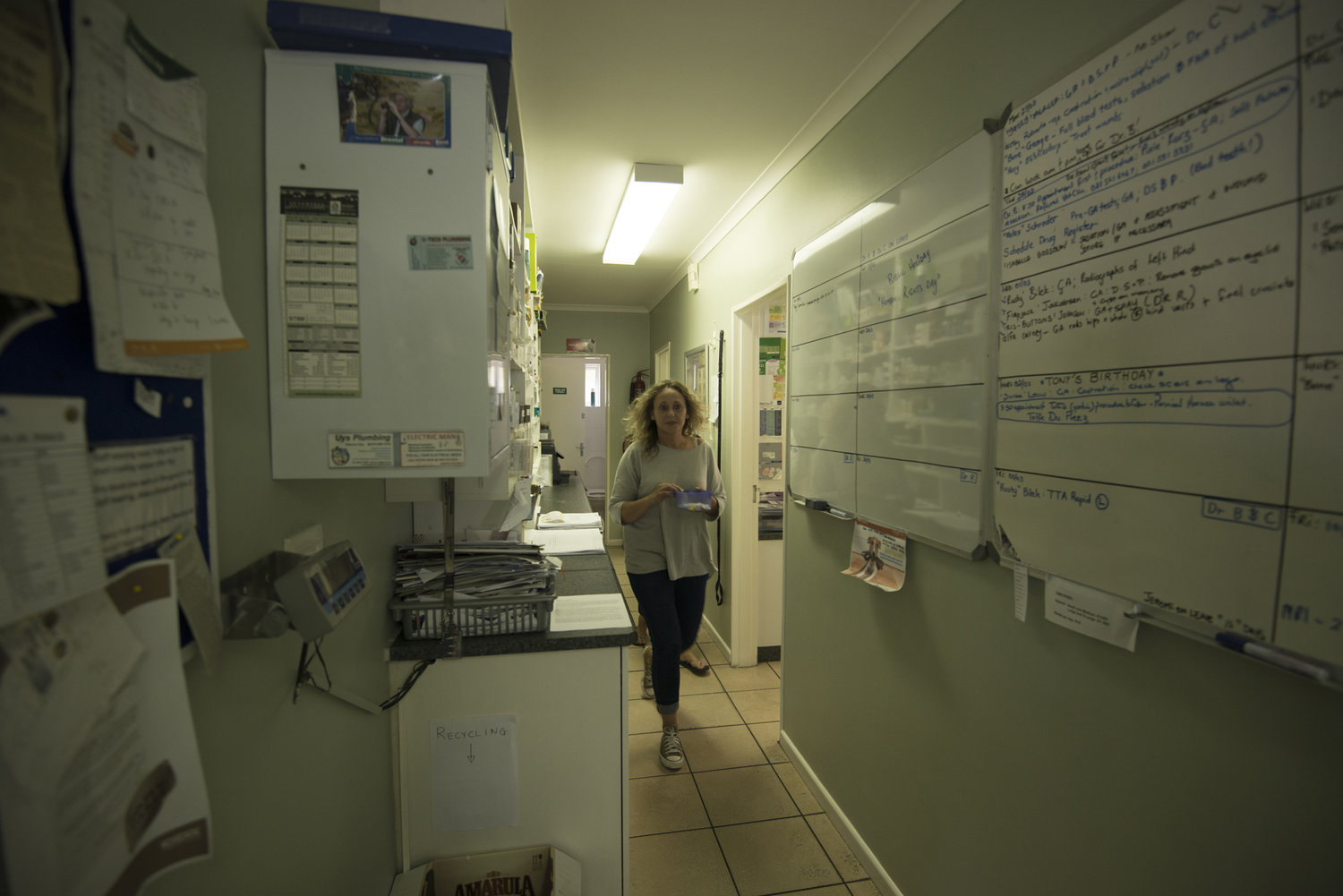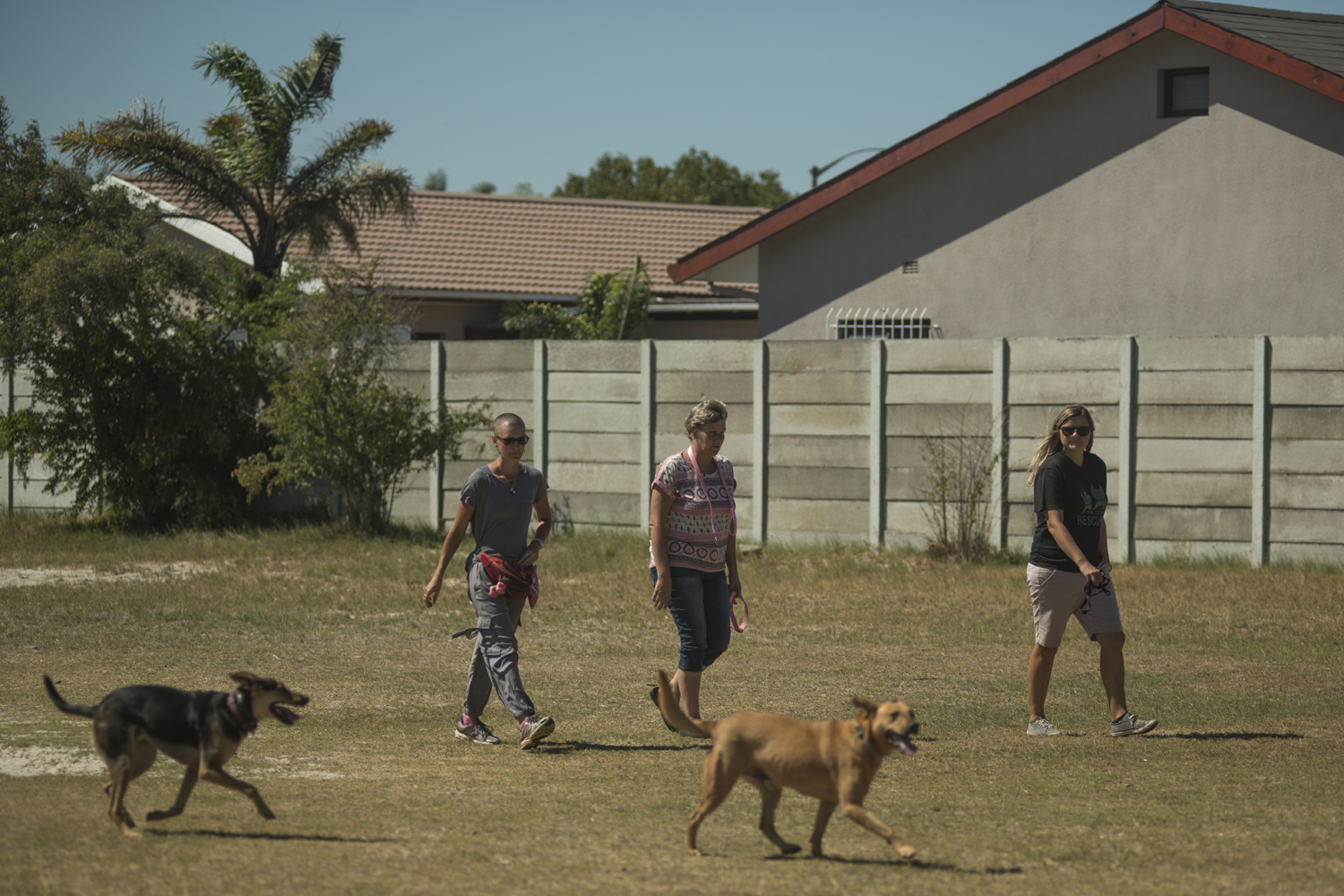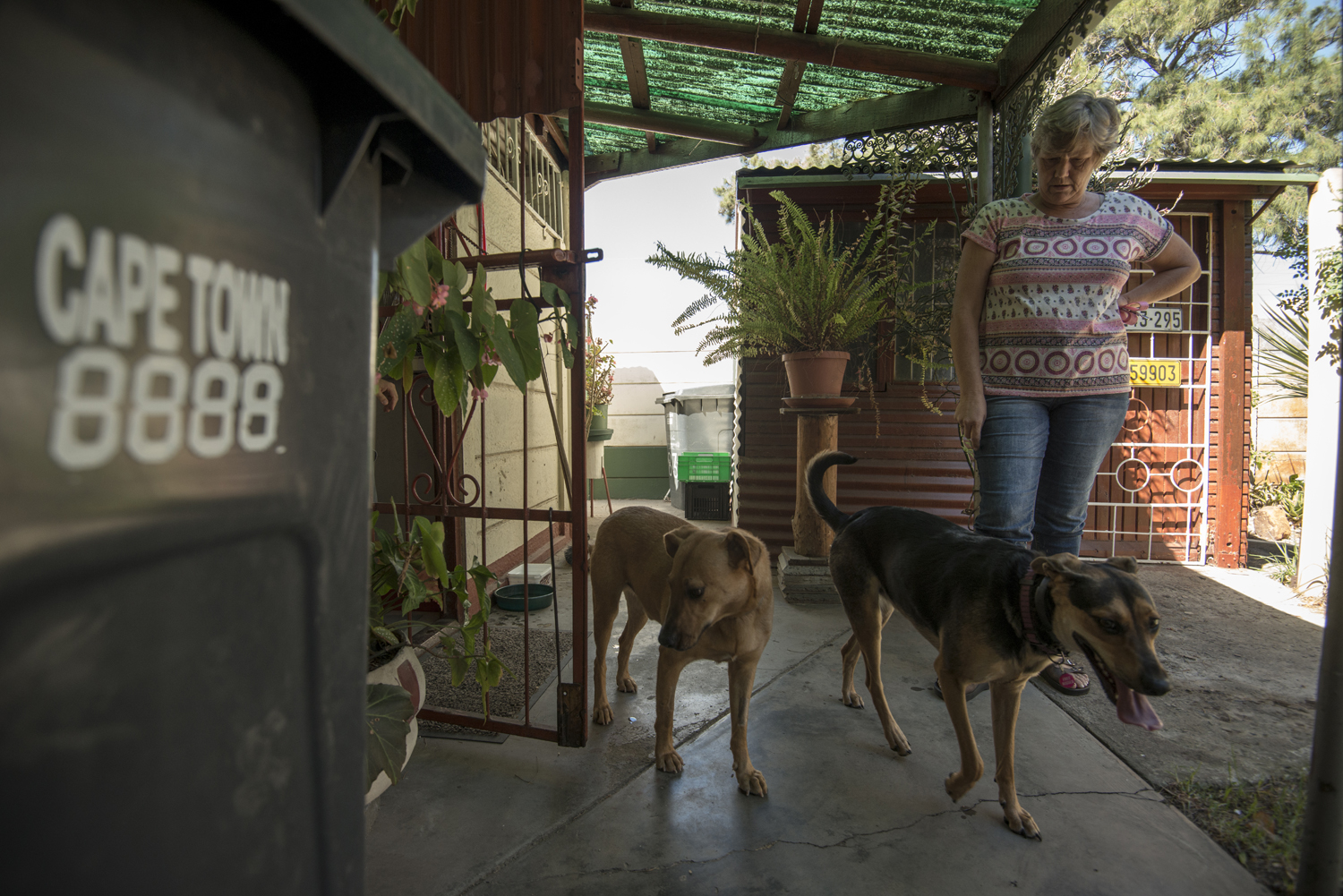Rosie Kunneke, Tin Can Town (Cape Town, South Africa)
Dogs are commonly seen as commodities that can be bought in stores as playful companions or security guards. When they reach sexual maturity, dog owners want their buddies to have fun and procreate, but usually don’t want to take care of over half a dozen puppies that might be born. This is how most of abandoned dogs stories starts, but not how all of them end.
Rosie Kunneke has a financial degree and used to work with big bucks in Cape Town, South Africa, but it all changed when she realized the unfair treatment animals were receiving from people. She became vegan, quit her job and started to work as an animal rights activist for all species and no money. After going to Antarctica to protect whales, having her entry denied in Japan for defending dolphins, and being arrested for trying to save pilot whales in the Faroe Islands, Rosie is focused in rescuing thousands of dogs and cats in the very poor and dangerous Capetonian township of Blikkiesdorp.
The area is divided in almost 20 blocks with dozens of tin made houses each. In average, there’s one bathroom for every 8 houses, and some 20.000 people living with US$1 a day. It’s not hard to imagine that a place like this is home to gangs and violence, and if conditions are bad for people they’re worse for dogs. There are more domestic animals than people in Blikkiesdorp. They’re poorly fed, dehydrated, host to many diseases and full capable of breeding, which escalates the problem by the day. Most of the dogs are of mixed breeds, and the only purebred dogs found are pitbulls that are used in illegal dog fights.
To fight these problems, Rosie and three friends (Dinielle Stöckigt, Clarina Hanekom and Nikki Botha) started Tin Can Town, a non profit rescue organization that survives only through donations, and 90% of them come from abroad. They use every cent on food and treatment for the animals since operational costs are paid from their own pockets. The organization counts with some volunteer help every week to see between 150 and 250 animals. These animals are dipped, fed, vaccinated and treated while the sick and injured are taken to the vet clinic. But things don’t always go peacefully. Tin Can Town volunteers have been robbed while taking care of dogs, and very often you see these tough women arguing with intimidating men for the sake of the animals.
The houses in this township are too small for the families that live there, so dogs usually stay outside even when it’s raining. So Tin Can Town investigates dog owners to provide kennels for dogs that have been spayed and neutered, and will make good use of a nice and comfortable place to sleep. They use handy help from local kids to find their way in the maze of houses, and to alert if danger is on the way while kennels are being delivered.
Blikkiesdorp is located next to an airport, and there’s a government plan to remove the houses and incorporate the area to the airport. If that happens, many animals will be abandoned, so Rosie is racing against time to deal with the dogs and cats situation there before this plan becomes a reality.
When Rosie is not doing work for the organization she still works for animals. The vet clinic she manages is the same that provides discounted prices on medicine and treatment for dogs and cats she rescues. The clinic is also the workplace for other Tin Can Town’s volunteers showing that animal lives are also their lives.
The organization’s work doesn’t stop there. Many rescued animals can’t go back to Blikkiesdorp because they’d face the same problems over and over again, so Rosie and her friends foster them until they find a nice and permanent home. The introduction to a new home needs to go very smoothly to fit Tin Can Town’s standards, and that’s why they use Justine 's help, a volunteer animal behaviouralist.
This story was documented in collaboration with Guiga Pirá on February and March, 2017.
